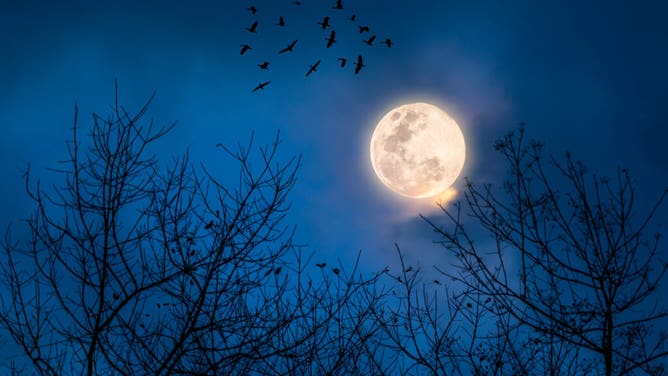Navajo Nation Opposes Plan To Send George Washington, Other Human Remains To The Moon
Members of the Navajo Nation are unhappy with a plan to send human remains to the moon, and now the Biden Administration has stepped in to mediate.
The White House called an emergency meeting Friday ahead of the scheduled Monday launch of a rocket carrying remains of former U.S. Presidents and Star Trek actors, among others. While the plan is to memorialize humans on the moon, the Navajo fear these space burials will turn it into a waste site.
"The moon holds a sacred place in Navajo cosmology," Navajo president Buu Nygren said.
"The suggestion of transforming it into a resting place for human remains is deeply disturbing and unacceptable to our people."

(Getty Images)
The two-stage Vulcan Centaur rocket contains hair samples from three US presidents — George Washington, John F. Kennedy and Dwight D. Eisenhower. It also holds the remains of more than 300 other people, including late Star Trek creator Gene Roddenberry, his wife, and several cast members.
The remains come courtesy of Celestis, a space burial company. Bet you didn't know there was such a thing. But if you're interested in launching your own loved ones into space, their prices start at $12,995.
Just don't tell the Navajo about it.
Navajo Nation Pushes Back Ahead Of Rocket Launch
Nygren wrote to the heads of NASA and the Department of Transportation in December to request the launch be delayed. The objection lies in the traditions of many Indigenous people who hold the moon sacred. Sending human remains there can be seen as an act of desecration.
"It is crucial to emphasize that the moon holds a sacred position in many Indigenous cultures, including ours," Nygren wrote, according to Native News Online.
"We view it as a part of our spiritual heritage, an object of reverence and respect. The act of depositing human remains and other materials, which could be perceived as discards in any other location, on the moon is tantamount to desecration of this sacred space."
Celestis' CEO Charles Chafer begs to differ.
"Our memorial on the moon is handled with care and reverence," he said. "No one, and no religion, owns the moon."
In fact, Chafer sees the lunar burials as a celebration.
"I don't understand why doing that on a dead planet is desecration — where we have literally millions of ash-scattering sites on the living planet Earth, and we don't consider that desecration," he said.
He kind of has a point there.
Anyway, assuming the mission is completed, a lunar lander will drop 62 sets of human remains on the moon's surface on Feb. 23.
The rest will continue into deep space to orbit around the sun.
Follow Amber on X at @TheAmberHarding or email her at Amber.Harding@OutKick.com.